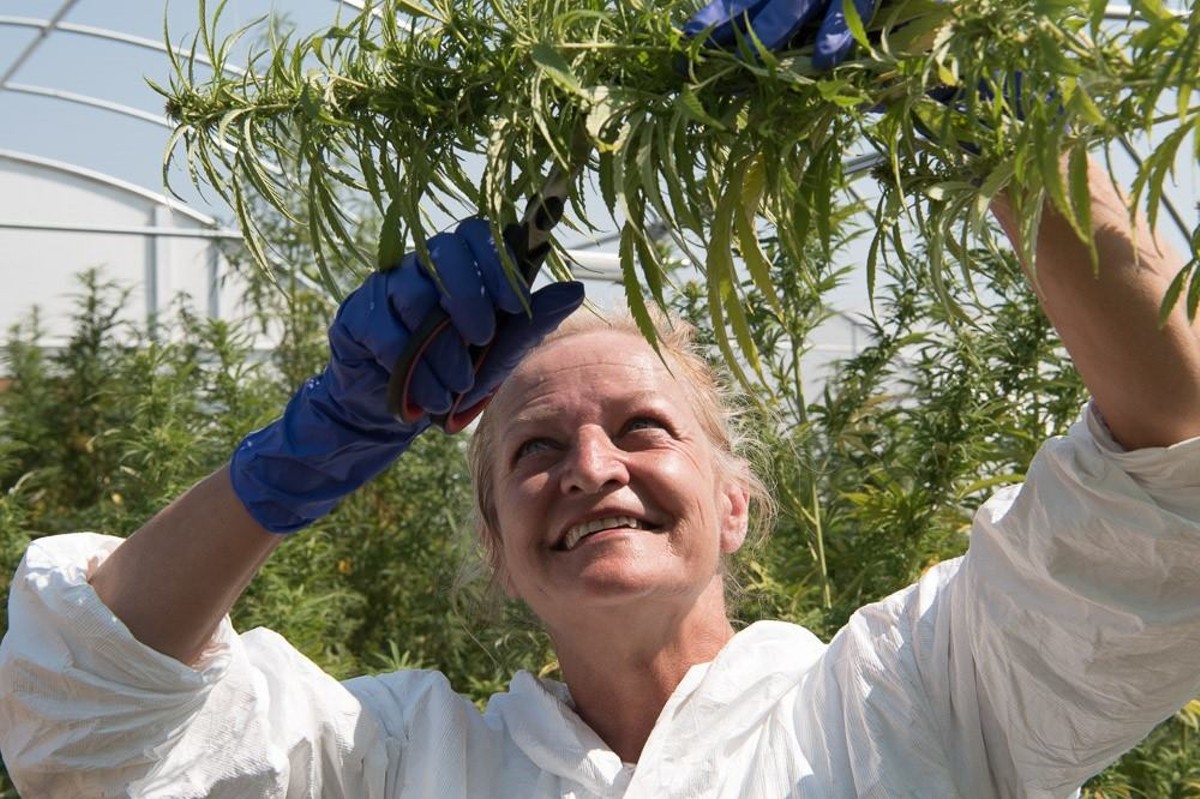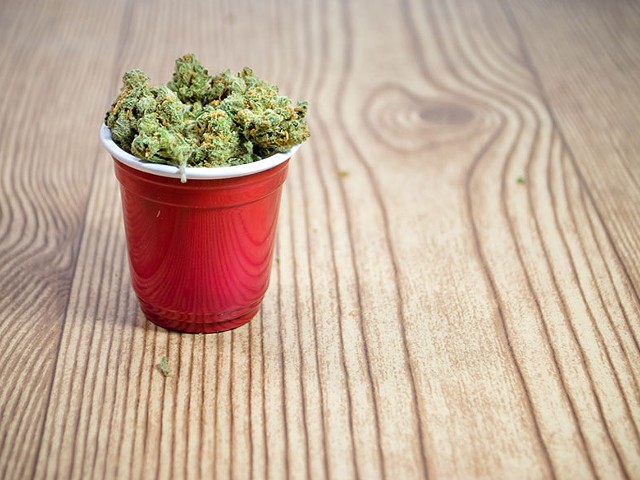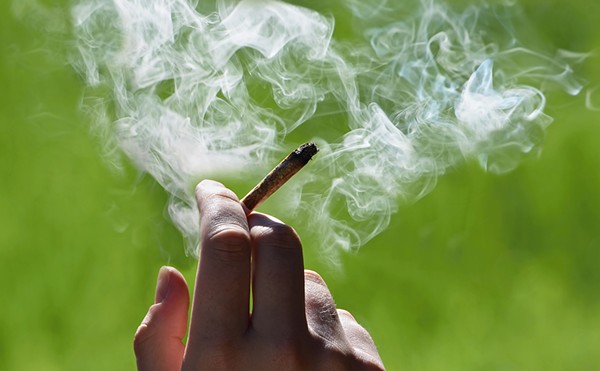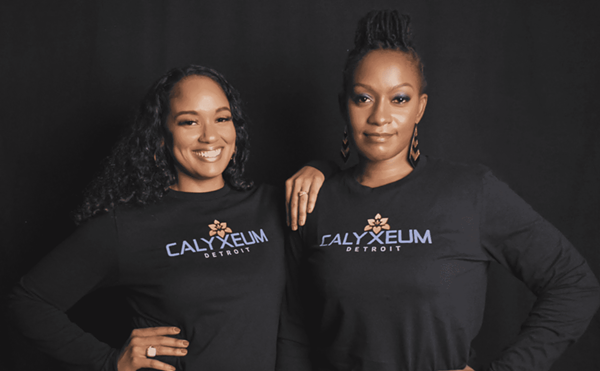There have been a lot of people with dreams of making it big in the marijuana business. A few years ago investors were flooding into lawyers' offices seeking partnerships with locals, and the ideal was to figure out what worked so you could franchise it across the state — and ultimately across the nation.
That may still be how it works out, but it's been a bumpy ride up till now with Michigan's recalcitrant state government.
Iron Laboratories, LLC, a cannabis testing facility based in Walled Lake, was started by a group with a dream and a plan to expand into a national business. They got the good news that they were among the first businesses to be granted licenses by the state of Michigan. That's a huge step for Iron Labs.
Wwhen the place first opened up they were a nervous bunch, practically shaking during a Metro Times interview in 2014. It was as though they feared the police would come busting through the door at any moment — which wouldn't have been that far-fetched at the time. And they took pains to show that they were serious businessmen, not a bunch of stoners.
"At that time we were operating in a gray area," says Rob Teitel, president of Iron Labs. "In 2011 we were in uncharted territory. Anything anybody was doing in the industry was brand-new. ... It went from an underground industry to becoming a business. Now even vanilla people, everybody talks about marijuana. It's out in the open and the stigma is gone."
When marijuana was a totally underground phenomenon, nobody was testing products for pesticides, molds, or anything other than how high you got. Now it's becoming about cannabinoid and terpene profiles.
"In 2011 nobody understood the value of testing," says Teitel. "A lot of people in the industry didn't test."
Now everything sold to patients will be subject to testing. And that's pretty good for someone who's in the testing business.
Things have been steadily changing. Seven years later Teitel is obviously more at ease talking about it. Although the business started out right here in Michigan, by the time the business was licensed here, Iron Labs had already gone national. It's also been operating a testing facility in Oregon, which legalized medicinal marijuana in 1998 and recreational marijuana in 2014.
"The licensing process isn't as stringent in Oregon," says Teitel. "The application process wasn't anywhere near the same. The difference is that when Oregon went recreational there was already a mature [medical] cannabis industry there. The barrier to entry, in Oregon it's a much easier area of entry."
It may be that they are just more mature about marijuana in Oregon, period.
Michigan may have a more difficult entry into the business, but the state is nevertheless making that entry. Hopefully the stigma against marijuana will continue to lighten up and the vanilla people will have plenty to say.
No chillin'
Although medical marijuana edibles are allowed under the new rules established by the state Department of Licensing and Regulatory Affairs, a recent advisory sheds some light on the complications that can crop up. Any food products that require refrigeration cannot be infused with cannabis extract and sold in provisioning centers.
That means that while candies, cookies, popcorn, chocolates, and even fruit pies will be perfectly legal to sell, things like ice cream, cheesecake, or any dairy products at all won't be. It makes sense that foods requiring refrigeration fall into a different categorization in the world of food handling, although it seems that the staff at retail locations can learn how to put stuff in the refrigerator.
The advisory doesn't mean that medical marijuana patients or food preparers can't give the creamy stuff a try for private consumption.
Proposal 1 language
Here is the exact wording for Proposal 1, the petition initiative question on marijuana legalization in Michigan, as it will appear on the Nov. 6 ballot: "A proposed initiated law to authorize and legalize possession, use and cultivation of marijuana products by individuals who are at least 21 years of age and older, and commercial sales of marijuana through state-licensed retailers."
That's the abridged version of the five-page document that people will be voting on. A key point is that last phrase specifying that commercial sales will be allowed. When anti-pot Bill Schuette became state attorney general in 2011, in order to subvert the medical marijuana act he claimed that the law may say patients can have marijuana, but it does not say there can be stores that sell it to them. This time around nobody is taking the chance that could happen again. And nobody will find themselves explaining that the perfectly legal supply of medical marijuana was not purchased at a store — it fell through a hole in the roof.
Alternative smokes
The tobacco industry has been eyeing marijuana as its own sales have faded. Things don't look to be getting any better for them as industry prognosticators predict continued shrinking of the market. Tobacco companies have lived on the edge of a dilemma wherein their addictive product guarantees a strong customer base, yet its carcinogenic qualities kill them. What's a cigarette company to do?
Investing in marijuana might be a way to diversify away from tobacco. This summer Imperial Brand, the company behind Kool and Winston cigarettes, became the first big tobacco company to invest in cannabis. Philip Morris International has taken out a patent for genetically modified plants with higher terpenes (aromatic oils in cannabis). And Alliance One International, a North Carolina-based tobacco company, has bought a grow facility in Canada.
Tobacco companies seem to be going in the same direction as alcohol producers in creating alliances in the new industry. Could it be that alcohol and tobacco executives believe they're going to lose big-time as marijuana enters the picture?
Training dispensary workers
Most of the seminars around cannabis have been about investing and applying for state licenses, but apparently the next shoe has fallen. On Saturday, HempStaff, a national recruiting and training company, is holding a four-hour Michigan specific training session at the Hilton Garden Inn Detroit Metro Airport for people who want to work at provisioning centers. Topics covered include cannabinoids, terpenes, cannabis products, dosage, the endocannabinoid system, how to recommend products, communicating with new patients, and inventory control.
This is the first event of this kind, aimed at the specific skills for dispensary workers, that I've noticed around here. Marijuana sales outlets aren't going to provide huge numbers of jobs, so the people who do get these jobs need to know this stuff — every little bit helps. Participants who pass the test at the end of training will receive HempStaff certification.
More information is available at hempstaff.com.
Stay on top of Detroit news and views. Sign up for our weekly issue newsletter delivered each Wednesday.







